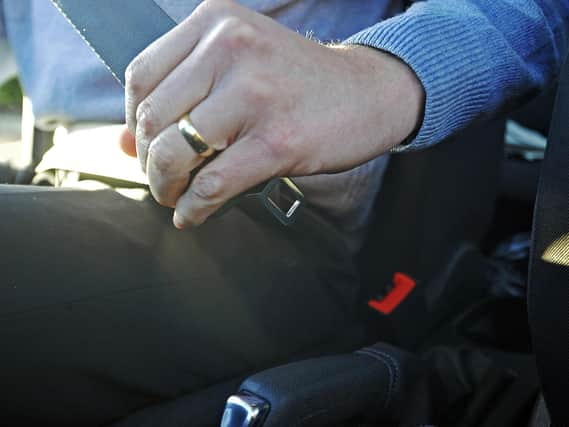Tips for drivers to maintain cars during lockdown


Cars could have laid dormant for up to 46 days, potentially more, by the time lockdown is lifted and so it’s essential cars are being looked after to avoid the risk of breakdown when back on the roads.
Cabinet Office data* shows motor traffic dropped by 73% on 29 March compared with pre-outbreak levels, falling to the lowest level since 1955.
Advertisement
Hide AdAdvertisement
Hide AdOnce schools re-open, and recommendations on working from home are reversed, drivers could be returning to the roads just as quickly as they left.
Just like the increases its sees following the Christmas break, Green Flag expects to see bigger increases than this in its breakdown call outs when restrictions are lifted.
With such a significant drop in motoring, it is likely there are drivers who won’t have as much as turned their engine on for the duration of lockdown.
Coupled with the government announcing a six-month extension on vehicles due for a MOT on or after 30 March, it is more important than ever to ensure vehicles are kept road worthy, especially as research by Green Flag in 2019 highlighted that over two million vehicles failed their MOT due to dangerous faults.
Advertisement
Hide AdAdvertisement
Hide AdBaring this in mind, the breakdown provider is urging drivers to follow some simple maintenance tips throughout the remainder of lockdown, to ensure they can return to the roads safely, once they’re able to.
The battery is one of the most vulnerable parts when a car is left unused for a period of weeks, with a third of car batteries going flat due to cars being left idle for too long, reports the Cabinet Office*. Green Flag recommends starting cars once a week and letting the engine run for around 15-20 minutes to avoid flat batteries.
This will charge the battery and ensure it’s healthy for those all-important journeys when the lockdown is lifted and for when you need to regularly use your car again.
However, batteries aren’t the only thing that can go flat.
During lockdown if drivers aren’t using vehicles for essential travel, it is key they don’t keep the tyres in one position. Rolling a car back and forth to keep the rubber from degrading is a top-tip to keep tyres ready for any essential journey.
Advertisement
Hide AdAdvertisement
Hide AdBlanche Oseland, Product Manager, Green Flag said: “It’s hard to predict when life will go back to normal and we’ll all be back on the roads, but as an unprecedented number of vehicles could have been lying dormant throughout lockdown we want to make sure everyone is maintaining and checking their cars so when we are using them again, it’s safe to do so.
“At Green Flag, we are doing all we can to ensure drivers feel prepared when getting back on the roads after the Coronavirus pandemic. However, if a breakdown or any issue occurs, customers can rest assured we’ll still be there for them, as key workers throughout the lockdown, we continue to operate 24 hours a day, 365 days a year.”
As a way of saying thank you to the UK’s NHS Heroes, Green Flag has also announced it will provide free assistance to NHS employees. www.blog.greenflag.com/nhs-cover-announcement/.In order to help motorists reach their destinations safely and avoid breaking down, Green Flag has released the following common-sense tips to stay safe when returning to the roads after Covid-19:
Green Flag’s Back to Road Driving Tips:
Battery - When a car sits unused for a long time, its battery can go flat. That will mean the starter motor can’t do its job and you’ll go nowhere fast. During Covid-19, you should start your car once a week and let the engine run for 20 minutes. This will charge the battery.
Advertisement
Hide AdAdvertisement
Hide AdA new, healthy battery should be able to go unused for a few weeks without losing all its charge, but older batteries will need some help during the pandemic – especially in colder weather.
Tyres - If you can, at least move your car backwards and forwards once a week during its lockdown. For a start, tyres rely on use to move the oils they contain so they stay supple. And if they are left for months in one position, they’ll develop flat spots and the rubber will degrade.
Brakes - Corrosion building up between the brake’s pads and discs makes them stick on. Moving the car backwards and forwards at least once a week should prevent this happening. Obviously make sure it’s safe to do this first.
Air Con - The air conditioning that features in most new cars uses the coolant that flows through it to lubricate its seals. If the air con goes unused for a period, those seals can dry out and cause leaks. When you start your car to charge the battery, make sure the air con is switched on too.
Fuel - The fuller a car is with fuel when it’s left, the better. Both petrol and diesel can degrade when left for long periods.